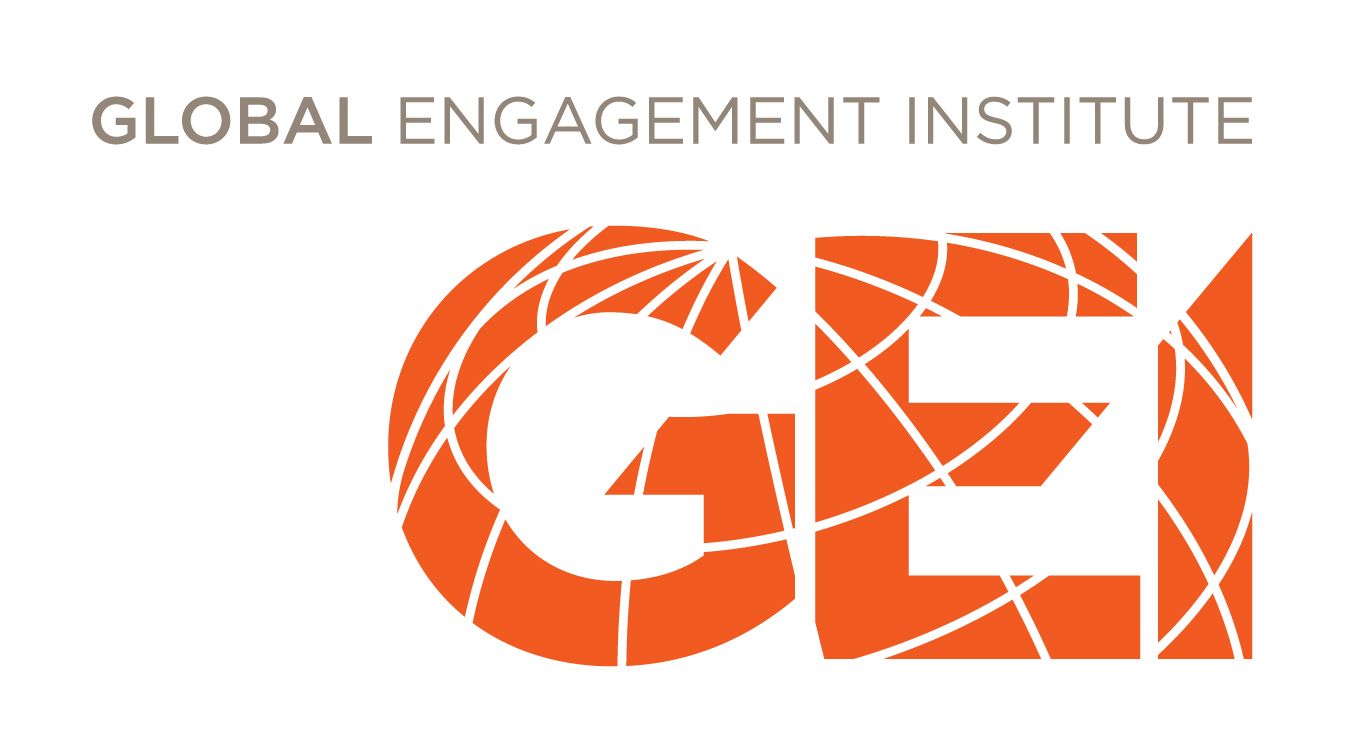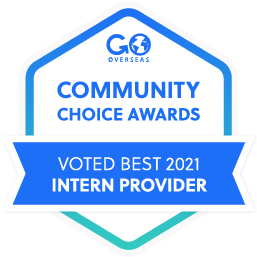GLOBAL SUSTAINABILITY INTERNSHIP
A 4-credit multidisciplinary internship in Rwanda or Vietnam
AT A GLANCE
-
Dates: Custom dates, year-round
-
Duration: 4 weeks or longer
-
Destinations: Rwanda | Vietnam
-
Credit: 4 U.S. credit hours (~ 8 ECTS credits) for eligible undergraduate university students
-
Eligibility: High school/undergrad/grad/professional - any field and level of study
-
Tuition fees: US $1,036 ($259 per credit hour)
-
Onsite program fees (logistics etc): US $1,790 (4 weeks) + US $580 per extra week
It is our express desire to make this multidisciplinary program available to as many people as possible. As such, there are no specific prerequisites or requirements.
Our courses are designed to follow U.S. academic culture and standards. The U.S. grading scale of A to F is used. Participants will receive a variety of assignments. You will be evaluated according to your participation and engagement, a weekly reflective journal or blog, and a placement report. To be eligible to obtain the academic credits (for undergrad students), you also need to submit an essay.
1 U.S. credit hour (~ 2 ETCS credits) per 50 hours of internship is available for eligible undergrad students via our academic school of record, The College of New Jersey (TCNJ), under a Community Field Experience. The full internship is hence worth 4 U.S. credit hours (~ 8 ETCS credits). After successful completion of the Microcertificate, you will receive a GEI transcript. Please check with your academic advisor at your home institution to confirm how many credits can be accepted for your degree program and whether the institution is willing to issue its own credits. If desirable, TCNJ can issue a formal TCNJ transcript for credit transfer. For this, TCNJ charges an additional US $125 per U.S. credit hour.
The language of instruction is English.
Year-round (4+ weeks)
3 months prior
US $1,036 (tuition) + US $1,790 (4 weeks)
US $580 per additional week
US $580 per additional week
INSTRUCTORS & COORDINATORS
Meet our core team
All of our instructors and coordinators are highly experienced and resourceful professionals.
Program timeline
We are officially incorporated in New York and headquartered in Berlin. Our GEI Regional Study Centers are located in Kigali (Rwanda), Nairobi (Kenya), Cape Town (South Africa), and Ho Chi Minh City (Vietnam).
Our study abroad and internship programs generally focus exclusively on our GEI Regional Study Centers in Kenya, Rwanda, South Africa, and Vietnam. That said, institutional affiliate partners regularly request that we provide their faculty-led and custom programs also in neighboring countries. As such, we have the operational capacity and experience to provide programs across our three regions – in East Africa (Burundi, DR Congo, Kenya, Rwanda, Tanzania, Uganda), Southern Africa (Botswana, eSwatini, Lesotho, Malawi, Mauritius, Mozambique, Namibia, South Africa, Zambia, Zimbabwe), and Southeast Asia (Cambodia, Laos, Malaysia, Singapore, Thailand, Vietnam).
We welcome applicants from all nationalities in our programs. If you seek academic credits or continuing education credits, please make sure that your home institution will accept the (typically U.S.) credits that we offer. More details about credits can be found on our program pages.
Yes, your application is only complete with the payment of a non-refundable deposit payment of US $300 that goes towards your total program fee.
Sure, if you’re still looking for answers, we’ll be happy to connect you with one of our alumni.
We have signed a School of Record agreement with The College of New Jersey (TCNJ). Undergraduate student participants of our courses are generally eligible for U.S. credits via TCNJ. You can find more information in the following blog post: Academic Credits.
Credits are not typically included in regular program fees. They typically cost an additional US $125 per U.S. credit hour, payable to us.
It can take up to 4 weeks for you or your home university to receive a transcript.
The continuous monitoring of safety and security at our program locations has been an intimate part of our daily work since the very beginning of our operations. All of our decisions are made after careful consideration of every resource at our fingertips – our GEI Regional Study Center staff, our diverse in-country institutional partners, contacts in the field, relevant local government and police sources, local diplomatic missions, and a variety of news sources. Our program managers subscribe to various countries’ travel warnings and advisories, including those of the U.S. State Department. Resident managers make every reasonable effort to stay informed, and they disseminate updates to GEI staff and program participants about any changes that have implications on local safety, security, and health risks. And, when necessary, we take immediate action, including program relocation or evacuation.
Over the years of operating in Africa and Asia, we have unfortunately been forced to occasionally deal with diverse crises, ranging from civil unrest, terrorist attacks, politically motivated violence, or street crimes to car accidents, public health and medical emergencies, and natural disasters. As terrible and sad as every single one of these events has been, they have strengthened our ability to foresee and prevent many potential problems, and to respond swiftly and decisively to any crisis that really hits us. They have also helped us to develop the networks and relationships to those institutions and individuals who can make the difference in the event of an emergency.
Yes. Participants of our study abroad and internship programs receive a comprehensive health insurance that includes evacuation coverage. This is part of the program fees and arranged by GEI.
No. We are not a travel agent and typically only provide in-country services. Our partners and clients regularly recommend StudentUniverse for affordable international options.
No problem to arrive earlier or depart later. But you will be responsible for covering the added costs. If desirable, please contact us with your travel plans. If we’re able to assist with housing, transportation services, and excursions, we’ll gladly do so. Late arrivals are not permitted, unless previously discussed with GEI.
Depending on the program and the program location, we offer different types of accommodation: hotels, guest houses, serviced apartments, or homestays. As a general rule, study abroad programs utilize trusted guesthouses in gateway cities and trusted guesthouses, serviced apartments, or homestays in host communities. The latter are particularly applicable to interns. You can find additional information in the following blog post: Accommodation – What to expect.
Most of the modern electronic devices no longer need power converters. Please check if all your devices can cover the current between 110–230 Volt.
In gateway cities, we typically select hotels and guesthouses where Wi-Fi is relatively reliable, as long as you take into account that you’ll be staying in a developing country where internet speed can be slow and patchy. Homestay host families don’t always have an internet connection readily available. In such a case, we offer mobile hotspots that you can rent at an additional fee. At the host communities, we’ll make every effort to also provide internet access, even though speed and reliability are likely to be significantly poorer.
In the great majority of cases yes! A lot of the participants we host have dietary restrictions or food allergies. Please make sure to let us know in advance – on your application form – precisely what restriction or allergy you have. We will then try our very best to accommodate your needs, whether at a hotel or guesthouse or with a host family or serviced apartment.
Yes, as long as you're actually eligible for the program in question. Our programs are generally inclusive.
Yes, the deposit counts toward your program balance and will hence be deducted from the final payment.
No. Your deposit is not refundable. However, should you not be able to join a program, deposits can be stored for one year and used for another GEI program after discussion with your GEI coordinator. Please contact us immediately if you need to cancel your participation.
Yes. GEI offers a variety of merit scholarships, trailblazer scholarships, and opportunity scholarships and grants. You can find further information as well as additional resources for external funding opportunities in the following blog post: Scholarships & Grants.
Don’t wait until the last minute to take care of this important point. Various options are possible (scholarships, fellowships, financial aid, grants, or loans) and seeking multiple resources, including from friends and family, may be a very good idea.


